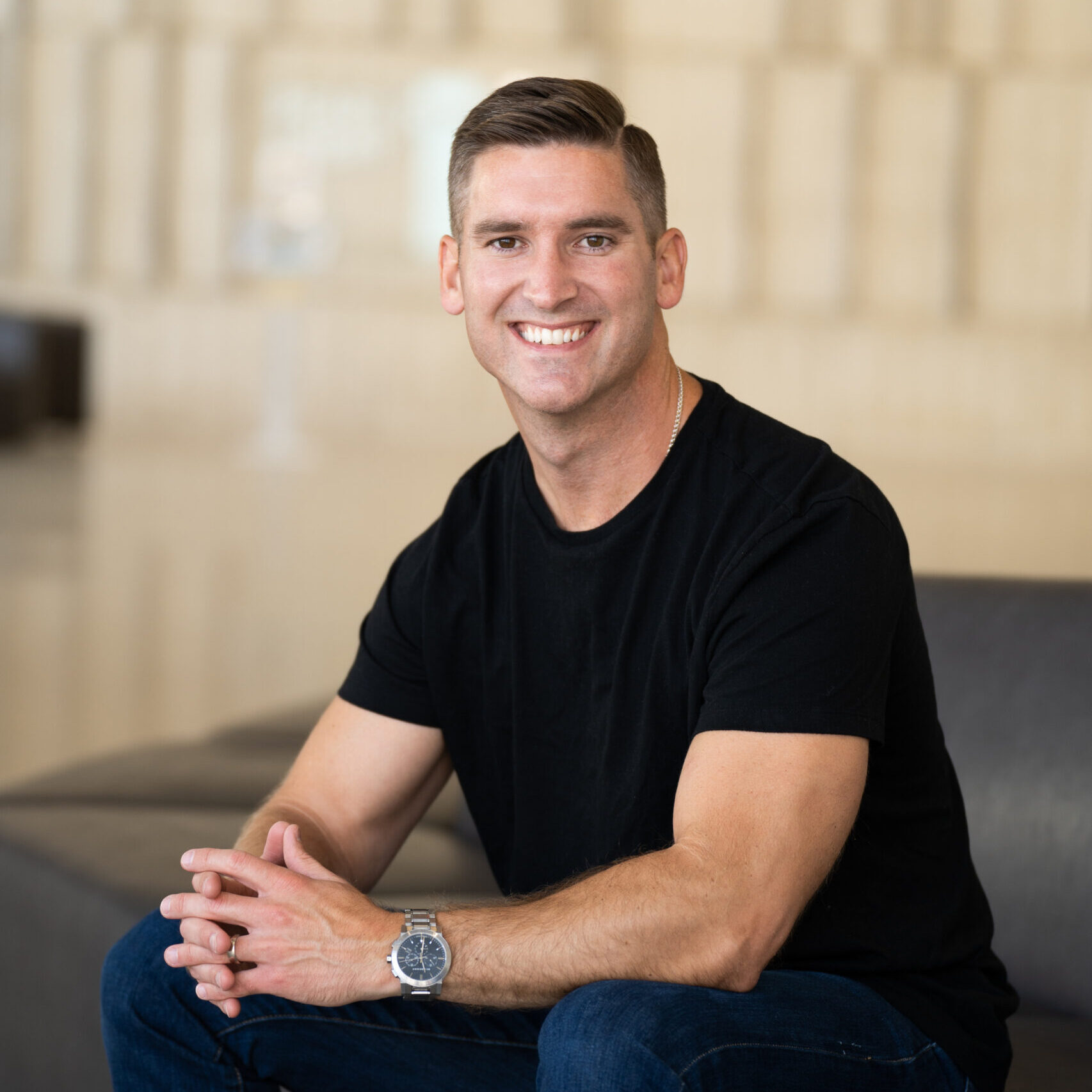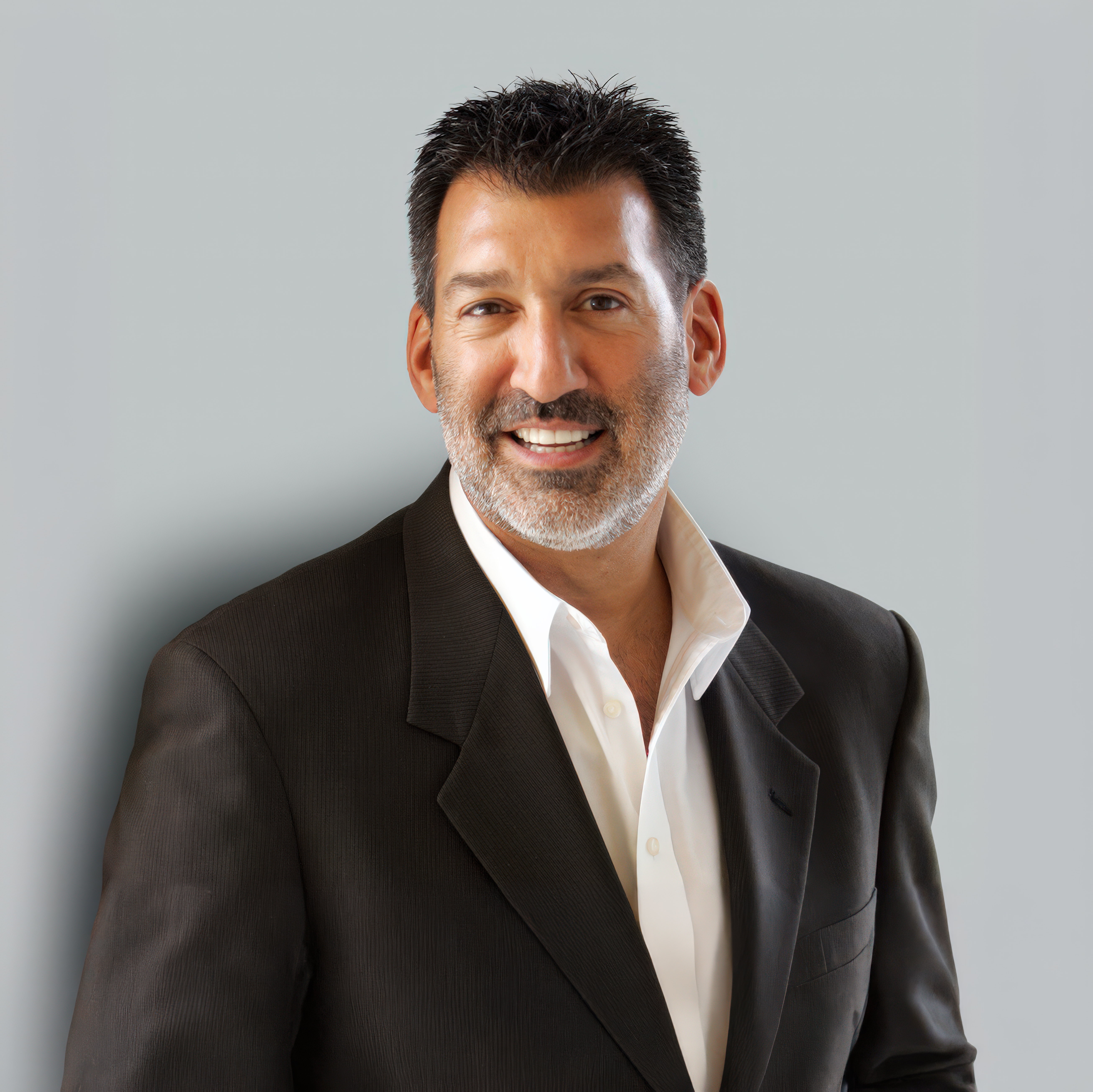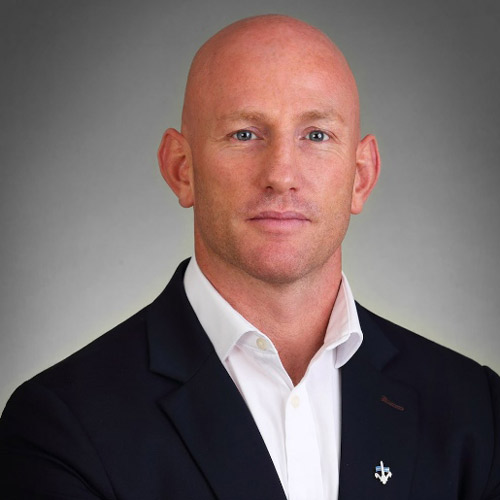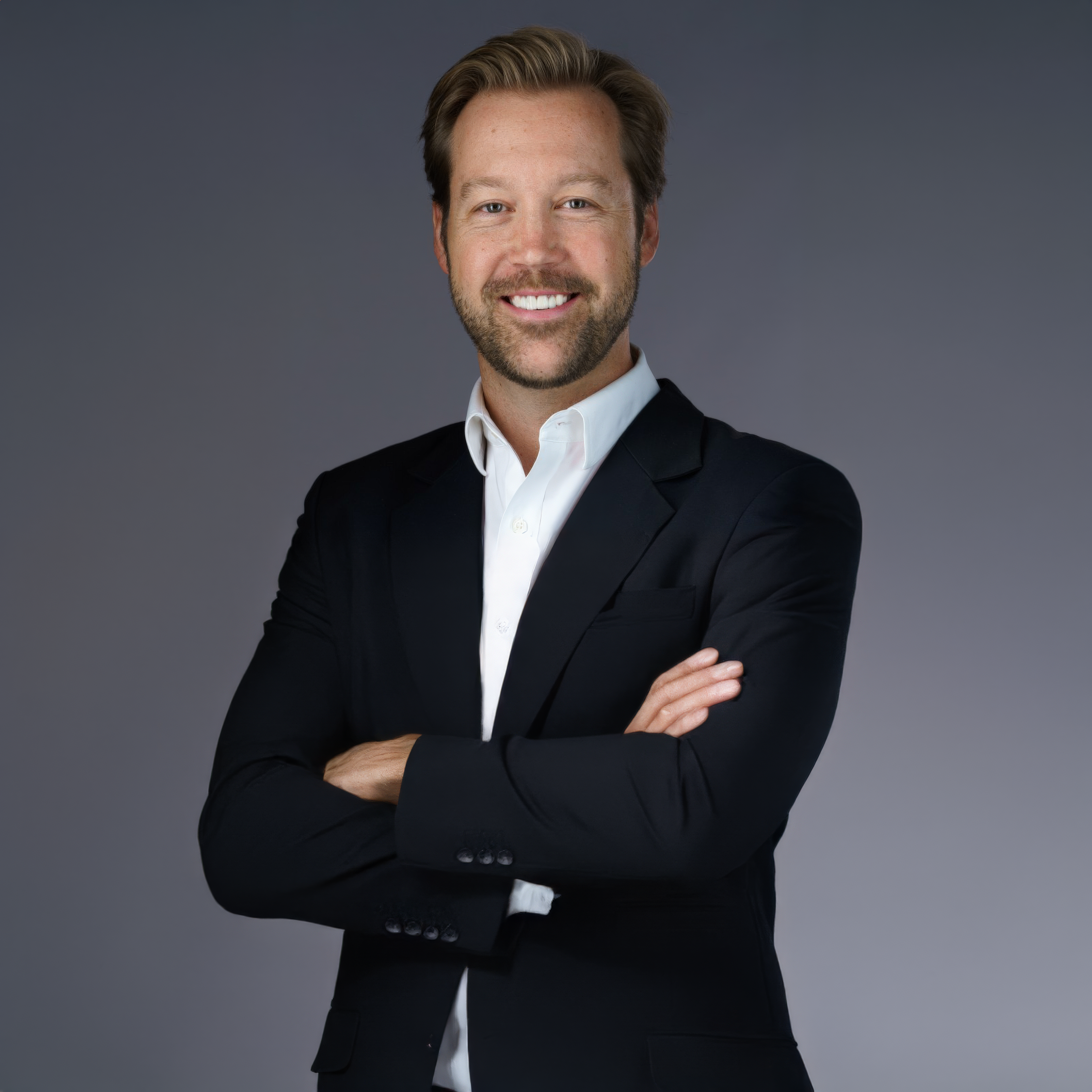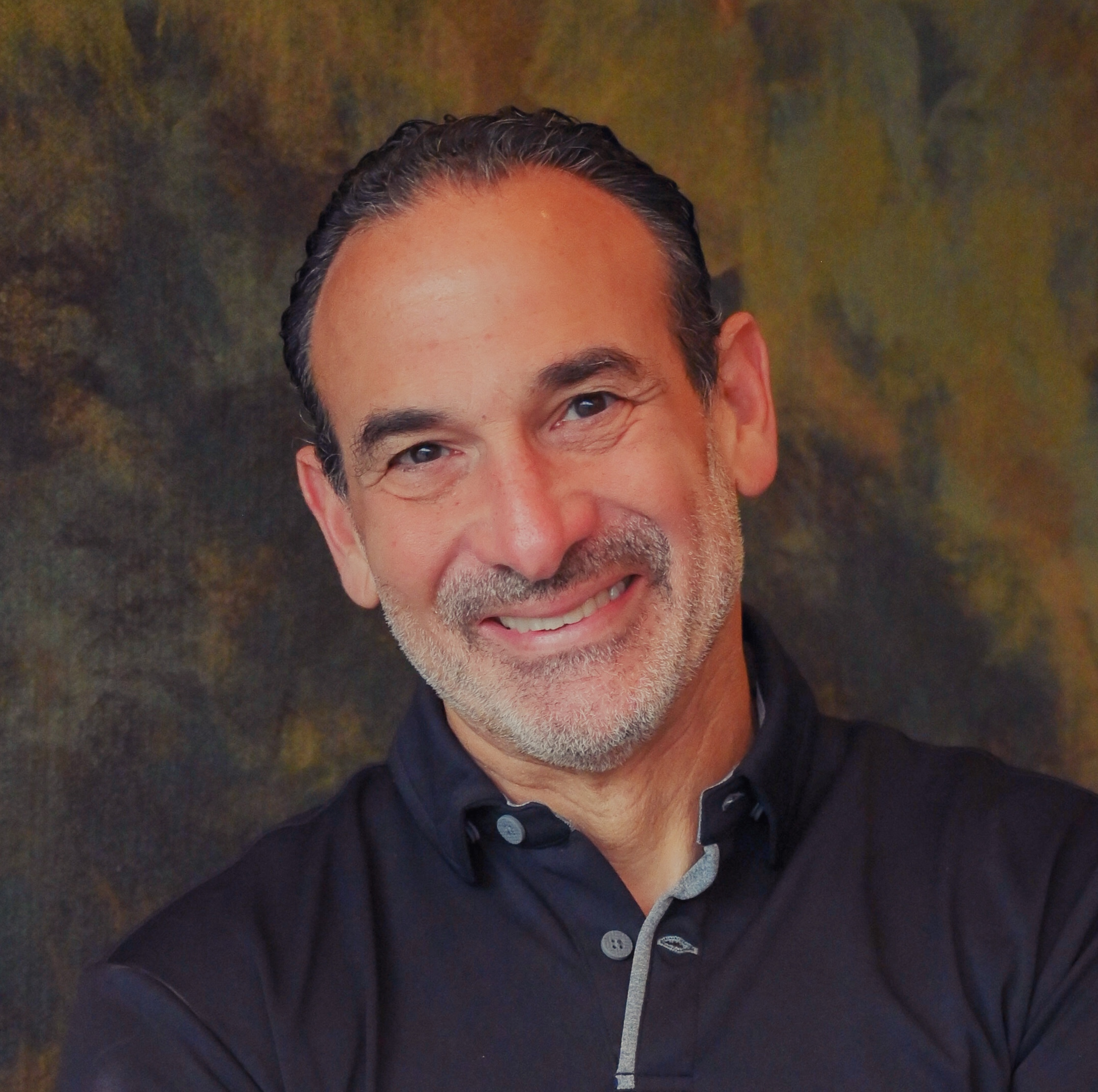RV (00:02):
Such an honor today to be able to introduce you to someone who I think is one of the most brilliant people on the planet. I think one of the most gifted communicators, one of the most intelligent people at creating distinctions that truly can transform your life and your business. And his name is Erwin McManus. And Erwin is the national bestselling author of this new book the book is called Mindshift. And Erwin has written several books. He sold actually over, well, well over a million copies worldwide. His books have been translated into over a dozen languages. He speaks all over the planet. He has spoken in 70 countries. I know that he speaks sometimes in stadiums, and he works with organizations like the NFL and the Pentagon. And he also has been a private coach to professional athletes, celebrities, world leaders, like billion dollar companies. And he just, I think, has a gift for helping people unlock their personal genius. And it’s been an honor to get to know him and work with him a little bit over the last year or so. And anyways, Erwin, welcome to the show.
EM (01:15):
Hey, thanks for having me, man. I, I, I, I’m impressed by the way you introduced me, but it’s, it’s not, it’s not quite that big, but it’s great. .
RV (01:24):
No, I mean, in, in all seriousness, it, one of the things that I love about you, Irwin, is like several of the most influential people that I, that are clients of ours and friends of ours. Mm-Hmm. . It’s amazing how many of them point back to you and say, Erwin changed my life. Irwin, Irwin changed my business. Irwin, Irwin changed the way that I, I think. And you know, I just, I, so anyways, I really, I really do believe it. But let’s talk about mind shift. , let’s talk about the, the, the, the, I mean, anything related to mindset right now, to me is super valuable and relevant because there’s so much turmoil in the world. There’s so much noise. I think there’s a lot of evil, a lot of negative programming and businesses, entrepreneurs, salespeople, authors, speakers, all of us have to protect our mind. And, and so gimme the premise behind Mind Shift. Why this book? Why now? The background?
EM (02:27):
Yeah. I mean, the premise of the book is written on an empty page with one sentence on it that says, the intention of this book is to destroy internal limitations. And Rory, one of the things that my life journey has helped me see is that no matter where a person is in their life stage, or what arena or domain they work in, they have the same internal struggles. I spent 10 years working with the urban poor, with with drug cartels, with street gangs, with wow people trapped in the world of drugs and prostitution. And I was super idealist, you know, in my twenties. And I thought if I could just remove all the external obstacles that are gonna thrive and break out of poverty and, and the lives are gonna change, and I began to discover to a, a really a, a very painful level that the real limitations for people who are trapped in poverty were the internal narratives, the, the mental structures that, that really ingrained poverty mindsets.
EM (03:28):
And I thought, okay, when I moved to LA start working with artists, creative celebrities, you know, the most talented and attractive people in the world, I’d have to develop new tools, exact same thing, the same internal mental structures, limited them, and really held them back and actually stole from them the joy of their success. And then the last, you know, decade or two, working with people in the hundred, millions, billions, people who have started companies from scratch and, you know, and have had immense success, people, the top of their fields, same exact mental structures. And so one of the things I really quickly began to discover is that you cannot get successful enough to fix your inner world. You actually have to do the work of developing mental structures for success. And one of the things that really highlight in Mindshift is most people try to prepare themselves to bear the weight of failure, but they rarely prepare themselves to bear the weight of success. And that success actually weighs heavier than failure.
RV (04:27):
So I wanted to ask you about that. ’cause You, I, that is one of the things you say directly in the book, you say, success weighs more than failure. It’s one of the questions I had prepared, . And since you, it was actually gonna be one of the last questions, but since you went there , like, talk about that. What does that mean exactly? ’cause I know you, you’ve been around and it’s unique. You’ve been around a lot of successful people Mm-Hmm. . But you’ve been around successful people in many different avenues. The political arena, the sports arena, the, the entertainment arena, business nonprofit. Like, you have this unique exposure. So with that was one of the things that caught my attention. So unpack that idea. Success weighs more than failure.
EM (05:14):
Yeah. Well just a little added caveat to that is the fear of failure weighs more than failure.
RV (05:22):
Oh, that’s good.
EM (05:24):
And, and so a lot of times what people think they’re being suffocated under as failure, but they’re not. It’s the fear of failure. Failure actually is not nearly as heavy as the fear of failure. When you fail, you realize, oh, I got this . I can, I can actually survive this. It’s, it’s the weight of the fear of failure, the fear of rejection, the fear of shame, the fear what others will say, that is what’s debilitating and crushing. But at the same time, the fear, the the weight of success is immense. And, and some of it is because there are things you lose when you gain success. You lose friends, you lose people who are cheering you on. It’s amazing how many people will cheer you on when you’re failing and will cheer you on while you’re trying to succeed. But when you succeed, the pause stops.
EM (06:17):
You actually move through what I would call a transitional loneliness. When people would ask me, in fact, I got asked this question a few weeks ago. Somebody said, so, is it lonely at the top? Is it true that it’s lonely at the top? And I said, first of all, I take it as a great compliment that you think I’m at the top . I, I’ve climbed a really small mid-size hill , and there are massive hill Himalayan mountains behind me and of opportunity. But if I’ve achieved any level of the top, I can tell you I’ve never had more friends in my entire life. I’ve never had, I’ve had a, a more tight-knit beautiful community in my entire life. Hmm. So if I’m at the top, it’s not lonely here, but you know, where it was lonely, every transition I’ve had in my life where I left a level of living and decided to elevate to a different level of living.
EM (07:08):
Because in that transition, you lose the friends you had, but you don’t have the friends yet you’re going to have, and there is a, there’s a, a massive weight of aloneness, which is a part of the weight of success. And then what happens is when you become successful, you, I, I was gonna say people assume, but no, we end up assuming that our success validates all of our internal structures, while we may actually have some incredibly dangerous internal structures for failure, and they become self-destructive. And that’s why you see so many people at the pinnacle, their success crumble, their marriages and their children are AMAs. They’re depressed and even suicidal. And even people with billions end up taking their lives because the weight of success was something they were not prepared for.
RV (07:59):
Yeah. I mean, that, and that blows, that always blows my mind. There’s so, there’s so many implosions that happen in, again, all these different arenas, doesn’t matter of sports, whatever. So what are some of these internal limitations, right? Like, what, what are some of the most common ones? And you know, I very much empathize with what you’re talking about here personally, of going, you know, I was raised by a single mom. My dad left me when I was young, never knew him. And I think a lot of my ambition for most of my life was just trying to prove to myself that I was worthy of not being left. Yeah. And, you know, in some ways I’m very grateful for that. ’cause I think it drove me really hard, which I’m grateful for what it has led to. But I very much empathize with what you’re saying, that no level of success ever actually fills that hole.
EM (08:51):
Yeah, absolutely. Because sometimes we don’t know if we’re running from something or running to something. Mm-Hmm. . And so oftentimes success is coming. ’cause We’re running from something, we’re running from poverty. We’re, we’re, we’re running from this struggle of self-belief that we have no value. We’re running from all the people who told us, we’ll, never amount to anything. You know, we’re running from the fear of failure of being what we were. And then we actually think we were running to something. And one of the, I think, really important nuances is that success, wealth, power, position, fame, they’re all wonderful consequences or benefits of life. They are terrible intentions. And so when success becomes a driving intention of your life, or wealth or fame or power, it actually leaves you empty because it’s a terrible intention. Hmm. It’s a great outcome. Like, I’m, I’m all for, you know, having success or gaining wealth, or having influence or, or, you know, act gaining power that you can use to make the world better.
EM (09:59):
It’s just that when those are the driving forces of your life, they leave you empty because they never satisfy. And, and someone asks me, what do you do when you’ve lost like your a hundred million dollar company? And, and so how do you regain your purpose? And, and I told him, I said, one, your purpose should have never been in your a hundred billion dollar company. Mm-Hmm. Your purpose should always be focused on who you’re becoming, not what you’re accomplishing. And if your intention is about who you’re becoming as a human being, no one can touch that. And success and failure are irrelevant to your intention. They’re just outcomes.
RV (10:35):
Yeah. Yeah. I, I, I think that, I love that idea that it’s more of, it’s a great, a great outcome, but a terrible intention. And when you, when you think about these shifts, you know? Mm-Hmm. one, one of the other things you talk about in the book is talent. Yeah. You said, you say talent is a hallucinogen.
EM (10:55):
I know. It’s a really hard thing to say that, that I, I shouldn’t have picked that word. I can’t even pronounce
RV (10:59):
It. Hallucinogen. It’s harder to spell than it is to say That’s true. I tried to spell it like 10 times. I was like, preparing, and I’m like, halluc, I, I don’t know. I can’t get it. But,
EM (11:08):
Well, you know, span Spanish is my first language. So hallucinogen is still a hard word.
RV (11:12):
There, . There you, there you go. But talk to me about the talent. You know, like, again, the book is called Mind Shift. Right? And that’s what I feel like that’s what you’re helping us do, is you’re helping us go almost like, don’t think this, think that. Yeah.
EM (11:26):
Why? So real quick, like, here’s some real quick summaries on my shift. ’cause Really my shift is 13 chapters of Red Bull. You can open up anywhere and you pop it open, you, you, you know, consume it quickly and it’ll explode in your brain. And one of the chapters that maybe the shortest chapter in the book is you are your own ceiling. It may be the shortest chapter, but it might also be the most important chapter. It’s about the mental shift from who is holding you back. And when we think that what’s holding us back is other people, the man, our past trauma, our parents, our, the abandonment we’re feeling you know, whatever it may be. Whenever you externalize blame for where you are in your life, you become powerless to change your life the moment you embrace. I am my own ceiling.
EM (12:13):
You know, I, I may not have wanted these things to happen, but I am powerful enough to respond to them. I’m in charge of my response. I’m in charge of how they shape me, and the person that I create myself to become. And then the moment you embrace that, it shifts everything you can. And you can listen to a person’s language when they’re always blaming someone else. They’re powerless to change their life. When they take responsibility for their life, they now are empowered to change. And then you mentioned the chapter Talent is the hallucinogen. Some people have the curse of talent. I did not have the curse of talent. I was not born with the curse of talent. But I know people who had the curse of talent. And my brother, I think, had the curse of talent in sixth grade. I think he was the fastest kid in the United States.
EM (12:59):
He was a, a superior athlete from day one. He was the high school quarterback, broke every conference record, had a full scholarship to play football. He’s also a brilliant, like a savant. He’s a genius. He and every arena, my brother was just naturally good at everything. So what happens when you have talent is people build external structures so they can actually access that talent. They don’t care about you. They care about the talent that’s inside of you. And so then you think you have the internal structure for success, but you don’t, you have external structures that actually protect that talent. So it can be accessed by those who want it. That’s why pro athletes, five years after they’re finished in the NFL, are divorced, drug addicted dead or bankrupt, because they were the most talented person in their schools from elementary to junior high to high school.
EM (13:55):
No one was as talented as them. So organizations built structures around them, access that talent all the way through college, all the way through the pros, the moment the structures are gone, wow, their lives collapsed. See, when you don’t have the curse of talent, you know, wow, I gotta find a different way to succeed. , you know, I don’t have natural talent. So you start working hard. You establish disciplines. You began to develop internal structures for success. Because I didn’t have any perceivable talent. I had to decide if I’m going to succeed, I have to take on certain patterns and disciplines that other people do not have. So what happened is that I created internal structures for success. And so when the world changes, when the environment changes, when the economy crashes, when you, you know, when a project goes south, I still have those internal structures.
EM (14:45):
And what I try to do in Mindshift is help a person realize, look, you may have talent, but talent is like a mirage. It makes you believe you will succeed without hard work. And so then when you fail, you move into a pattern of blaming rather than actually reframing. And when you understand that talent is just a hallucinogen, I’m so glad you have talent. I’m so glad you’re super intelligent, or that you have, you’re, you’re incredibly attractive, whatever it may be. But you need to realize you cannot build a sustainable future on talent. It has to be on the internal disciplines of, of mental structures.
RV (15:23):
Wow. Yeah. That’s powerful. That’s a, that’s a completely different, I mean, it’s a mind shift, a way of, of thinking of, of talent, you know, even as a, as a liability. You know, applying that specifically to the, to the people listening to this show that, you know, a lot of everyone who listens to this show is what we call mission-driven messenger. Right? Like, they have some calling to go, I wanna make the world a better place. And you, you are, you in many ways are, are what we aspire to become. You speak on the biggest stages with the most wealthy people in the audiences, the, you know, like the most in influential people. You mentor these folks. You’ve got books that are selling. What do you think are some of the mindset limitations, either that you’ve had to overcome or that you think other speakers and authors type, you know, coaches, consultants, that they have to overcome on their journey when they’re just starting out and they’re looking at, like, all the people on social media and all the bestselling authors and all the amazing speakers. Mm-Hmm. , what do you think are some of the, the mind set limitations in this space specifically? Yeah.
EM (16:35):
If you’re early on in the process, the two chapters you need to jump into right away are, you don’t need the applause. And no one knows what they’re doing. Those two chapters, I think are the most important chapters early on. And then I’ll talk about some other ones. But one, you don’t need the applause is really important. ’cause If you’re at the beginning of the journey, you, you need to make sure that your driving force is your own internal sense of accomplishment, rather than playing the game for the audience. Hmm. If you need people to celebrate you, if you need people to affirm you, if you need people to tell you you’re going to be awesome, you’re not going to succeed. And if I can put it in the book writing category, I can always tell when someone’s not gonna finish a book. Really? Yeah. It’s one thing.
RV (17:19):
Tell me
EM (17:21):
They write a page and they share it with everyone.
EM (17:26):
They write a chapter and they share it with everyone. Because you end up having the same endorphins of success when you share one page and people say, oh, I love the page. It was amazing. You such a great writer. Then you do when you finish the whole book, because now you’re living for the applause. You’re living for the affirmation of other people rather than this deep need to get this message out to the world. And so, one of the things I say right away is, do not become the prisoner of praise of applause, celebration. The other chapter, and there’s so much more we could talk about there, but I’m moving fast, is no one knows what they’re doing. You, you ever, ever,
RV (18:05):
Hold on a a second. I just before you, I can’t just let you go to this next one, . Just, I just, for, I have to feel, I feel like we have to just pause for a second. You said, do not be the prisoner. Say that again.
EM (18:17):
Oh, do not be the prisoner of praise. Yeah,
RV (18:20):
Man, that’s powerful. Irwin, like, because it’s like, praise is with everyone seeking. We’re seeking the likes, we’re seeking the shares, the comments, how many followers. And it’s like, we’re actually seeking the thing that makes us a prisoner. The, which means we, we perpetually are chasing after putting ourself in like a more strict jail cell, a tighter stronghold on our life that gets worse and worse and worse the more we achieve it. Because it’s like, we just become more and more, it’s like a high you get, you’re just chasing after it more and more and more.
EM (18:54):
By the way, that’s why incredibly famous people are so depressed. Oh. Because now, you know, when you were not famous, you were a prisoner of 10 people’s praise. But now you are famous and you’re the prisoner of millions of people’s praise.
RV (19:11):
Wow. I mean, that’s, that’s just, that’s powerful. I, I don’t, that’s just a, it’s a total mind shift to, to realize that maybe the very thing that you’re chasing could be the thing that you, is gonna make you a prisoner. You know? And for me, you know, I’m a hardcore bible thump of Jesus freak. Right. And so I’m always, I’m always internalizing things going. That could be God protecting you. Like the reason why he’s not giving you the fame is because he’s knowing like he might be protecting my, our hearts to go. You’re not ready to handle that. Like you said, that’s the weight, that’s part of probably the weight of success too. Anyways, so that’s really good. So yeah, the other one I love this is no one knows what they’re doing. And I totally, I’m a hundred with you on this. So like, tell, tell ’em about no one knows what they’re doing.
EM (19:58):
Well, whenever we start something new, we all feel like a fake , you know? And I mean, when I first started designing clothes, like my wife’s like, what are you doing being a fashion designer? You know? And, you know, what do you know about designing clothes? And I go, well, I know a lot about fabrics and I know a lot about textures and I know how things feel, and I know what they look like when they fall on your shoulders, just right. And I know what clothes looks like when it makes you look fat or fatter than you are. And when it makes you look slimmer than you are. And, and, and, but when I first started, I thought, what am I doing? Why am I doing this? I’m not Ralph Lauren. You know, I’m not Jerry Lorenzo. I’m not, you know. And so you always feel like you’re fake. You always, and you know, you don’t know. I’m going, I hope everyone knows I don’t know what I’m doing. You know? And, but I thought, I’m the only one doesn’t know. And I remember 10 years ago when I had a fashion company, I hired three guys that all had fashion degrees. And it took me about a year to realize they have no idea what they’re doing. And they have degrees, but they have less perspective, less sensibility. And I walked in one day and one of them was actually stealing all these patterns from another store.
RV (21:10):
Oh man.
EM (21:11):
And I, and I, and I go, oh, poor guy. He’s afraid to tell me that he doesn’t know what he’s doing. Because as agree. And that’s why a lot of times we steal because we don’t know. We can create. And, and early on we have to go. Of course. I don’t know what I’m doing. You know, I, I’m learning. And when I started working in film, you can you imagine what it was like to be behind a camera as a director, going, I hope these actors don’t look at me and realize I have no idea what I’m doing. And, and very, very quickly realized, oh, directing is like, it’s like creating a culture. It’s directing is like being an orchestra conductor with human talent. And, and all of a sudden I discovered, oh, I, I love this. I like, I, I’m, I’m, I actually have like, skill.
EM (21:57):
There’s so many things that I’ve done in my life that when I started, I felt like a complete fake. I had this massive imposter syndrome until I realized no one knows what they’re doing. And so they do it, and it’s only when they do it. And that’s when I went nuts. Lemme tell you, I, I hired Navy Seals. I filmed under the ocean. I, I rented a helicopter. We took off the, the the door and filmed from the air on a scene. And I would just literally coach myself to do the most difficult things in the world. ’cause I thought the only way I’m gonna learn how to do it is by doing it. And it, it was so exciting to realize early on in my life, the best posture is being an amateur. Hmm.
EM (22:40):
Whenever you’re a novice, you’re just so fresh and it’s all so new, and you’re wide-eyed, and you’re curious and you’re teachable. And here I am now at 65, lemme tell you, I am a beginner. We were even saying that before we started the podcast. See, I, I just tell myself, Hey, you’re starting over again. You’re a beginner. You’re a novice. Start from, from scratch goes. You don’t know what you’re doing, but it’s okay. But no one knows what they’re doing when they start. And you only learn what you’re doing as you do it, as you step into it and as you fail. And that is the greatest freedom in the world when you’re starting. It’s, it’s just wonderful. You don’t know what you’re doing. Own it. It’s gonna be the only time in your life you’re gonna be this free from all the hardship of experience.
RV (23:22):
. Yeah. I mean, that’s one of my favorite quotes from and from Steve Jobs. And he says, your entire life changes the day. You realize the whole world is created by people who are no smarter than you. Mm-Hmm. . And like, that’s the freedom is to go. No one knows what they’re doing. Right? Yeah. Like, nobody, the first time they try to write a page in a book, and you’re like, I’m not an author. What am I doing? Writing? Like, I’m not a podcaster. I don’t even know what microphone to use. Like, and then all of a sudden you look back after just doing it and it’s like, I guess I am that
EM (23:52):
You know, where it’s most clear, Rory and more, most terrifying.
RV (23:56):
Tell me
EM (23:58):
We have one life. We get to live on this planet. Mm-Hmm. . And we didn’t get a warmup game. We didn’t have a preseason, we didn’t have training camp. We’re born into this world without any knowledge, and we only get one shot. And for me, when I realized, wow, the most important thing we have is life. And no one knows what they’re doing. You know, you’ve, you’ve never been five before, you’ve never been 12 before. You were never 16 before every single phase of your life. You were doing it for the first time without any practice at all. And that’s why it’s so important to develop mental structures that actually help you see life clearly. ’cause Every phase of life you move into, it’s your first time.
RV (24:51):
Yeah. Yeah. And y’all, this is, this is the handbook for this right. Mind shift. It doesn’t take a genius to think like one is the, is the subtitle. And that’s what I feel like Erwin’s given us this handbook for exactly how to get pa to, how to get past these limiting beliefs, how to defeat them, and how to install as an operating system, like a proper set of, of, of thinking that creates a paradigm that gives you purpose, that gives you clarity, that gives you confidence, that gives you the insight of, of knowing that you’re free to create. You’re free, you’re free to live, you’re free to love, you’re free to do these things. I do have one last question for you, Irwin. Before I give before the last question. Where do you want people to go to hook up, like sync up with you and learn more about what you’re doing?
EM (25:40):
Sure. the easiest place to go is erwin mcmanus.com. And there you can find out about what we do online with the arena, which is our online mastermind and find out about the books and all these other things we offer. Erwin mcmanus.com is the best place.
RV (25:53):
Love it. Okay. So we’ll link up to, we’ll link up to that. Obviously you can buy Mindshift, you know. Mm-Hmm. anywhere there are books. I did wanna let you go without talking about creativity and accessing our genius Mm-Hmm. , especially in recent years. I feel like you’ve talked more about this you’ve got other books on this, a lot of podcasts and stuff is what, what are some of the limiting beliefs we have to be able to move past in order to access our real creative genius in order to go to really build the things that no one else can build or to write or create the things that no one else can create? Talk to us a little bit just about how to get past that limiting belief on, on creativity and, and artistic genius.
EM (26:41):
Yeah. You know, I ironic, Rory, the first book I ever wrote is a book called An Unstoppable Force. I wrote it like 25 years ago. And in that book I argued that humans are intrinsically creative. That every human being is, is an artist, and that every human being has genius within them. So this actually isn’t a new conversation for me. Interesting. This has been my life long conversation. And I, and I fought it. I mean, I got fought really hard even within the, the world of faith. I had people telling me, Irwin, you’re telling everyone that every human being is creative. You’re putting undue pressure on people. I had one theologian telling me people, humans are like worker bees or worker ants, they just need a task and they’ll be happy. Mm-Hmm. You need to stop telling people that they’re creative. I was in New York at an event and I had someone in a Q and A get upset going, you’re trying to create anarchy if everyone believes they’re a creative who’s going to do the work?
EM (27:40):
And and I said, you know what? Ironically, that’s the same mindset that the slave owners had. If you set the slaves free, what’s gonna happen? And, and I said, really, we need to believe first of all, that every human being has intrinsic God-given creativity inside of them. That there is genius inside of every person. In fact, every study in the world lets us know that humans are extraordinarily adaptive at birth. And Rory, you probably don’t think of yourself as a linguistic genius. Like, you know, because I think you probably only speak English. And yet, mostly, mostly,
RV (28:20):
Yep.
EM (28:20):
Mostly. But when you were two, you learned the most complicated language probably in the world because you had to, you didn’t even know English was hard. And if they had moved you to Japan, you would’ve spoken Japanese or to the Philippines. You would’ve spoken tagalo when you were two to five. You were a linguistic savant. You were mentally capable of adapting to any language in the world. And you could have learned multiple languages if they had moved you to multiple environments. But we convinced ourselves that we’re, we’re actually not that, you know, I’m not good at languages. No. You learned all the languages your brain believed you needed. Oh, I’m not good at math. No. You learned all the math your brain believed you needed. And the reality is that when you go, oh, I’m not a genius. Well that’s ’cause you convinced your brain. You didn’t need to be a genius to live the life you’re choosing. And what I’m trying to help people is to reawaken the full capacity within them. And I think that most people live a suboptimal life because they do not believe they have the capacity for more. And I wanna destroy that mental framework and help people see there’s a lot more in them.
RV (29:36):
Yeah. That is it. I mean, they live a suboptimal life because they don’t believe that they, they have the capacity for more. Yeah. So much of that is our internal thinking. So much of that is controllable mind shifts we’re creating. Go get the book, everybody. Irwin, thank you for your wisdom and for your insight and your distinctions. And I think you, you just are such a magnificent source of inspiration and creativity. And I just think profound wisdom and you’re one of my favorite communicators on the planet. And I just, what an honor to have you and to have this conversation, man. We will be cheering for you. Always, always, always. So thanks for being here.
EM (30:19):
Thank you so much. And Rory, thank you so much for believing in my shift for all the work you and your team did for helping us break barriers in in the launch. That wouldn’t have been possible without you. So we’re really grateful for you.
RV (30:31):
It’s our pleasure, man







